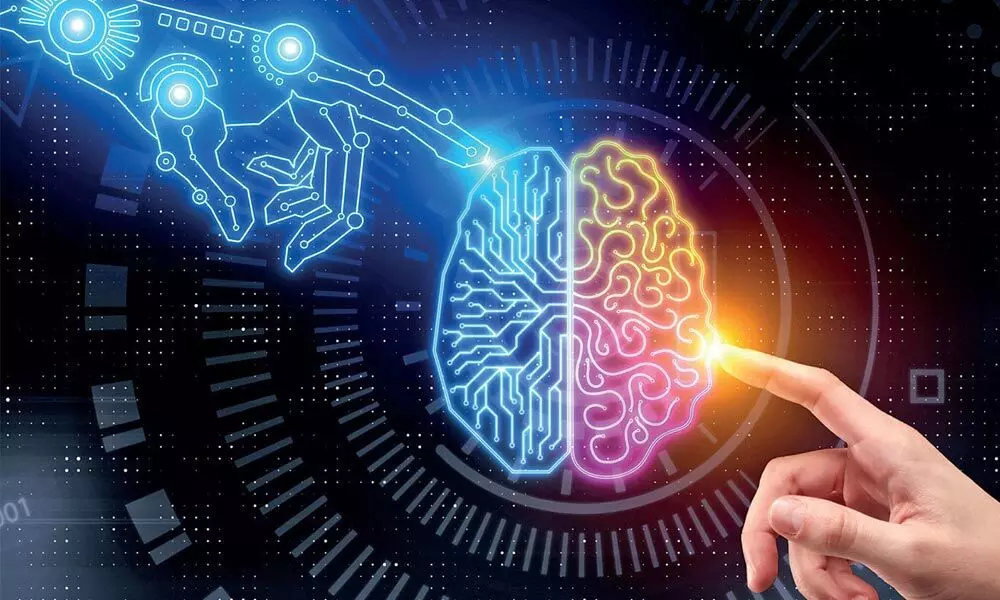Time to define partnership with AI and the resulting reality
Artificial Intelligence (AI) already transcends human perception through chronological compression or 'time travel' and it's time to define both our partnership with the new frontier and the reality that will result, says a path-breaking book by three leading thinkers that offers an essential roadmap to our present and our future - an era unlike any that has come before.
image for illustrative purpose

New Delhi: Artificial Intelligence (AI) already transcends human perception through chronological compression or 'time travel' and it's time to define both our partnership with the new frontier and the reality that will result, says a path-breaking book by three leading thinkers that offers an essential roadmap to our present and our future - an era unlike any that has come before.
"Enabled by algorithms and computing power, it analyses and learns through processes that would take human minds decades or even centuries to complete. In other respects, time and computing power alone do not describe what (it) does," Henry Kissinger, Eric Schmidt and Daniel Huttenlocher write in "The Age of AI And Our Human Future" (John Murray/Hachette).
"Are human minds and AI approaching the same reality from different standpoints, with complementary strengths? Or do we perceive two different, partially overlapping realities: one that humans can elaborate through reason and another that AI can elaborate through algorithms? If this is the case, then AI perceives things that we do not and cannot - not merely because we do not have the time to reason our way to them, but also because they exist in a realm that our minds cannot conceptualise," the authors write.
The human quest to know the world fully will be transformed, they contend, "with the haunting recognition that to achieve certain knowledge that we need to entrust AI to acquire it for us and to report back. In either case, as AI pursues progressively fuller and broader objectives, it will increasingly appear to humans as a fellow 'being' experiencing and knowing the world - a combination of tool, pet, and mind".
"This puzzle will only deepen as researchers near or attain AGI - Artificial General Intelligence that will not be limited to learning and executing specific tasks; rather, by definition, AGI will be able to learn and execute a broad range of tasks, much like those humans perform," the book says.
"Developing AGI will require immense computing power, likely resulting in their being created by only a few well-funded organisations. Like current AI, though AGI may be readily distributable, given its capacities, its applications will need to be restricted," the authors caution.
Limitations could be imposed by only allowing approved organisations to operate it. Then, the questions will become: who controls AGI? Who grants access to it? Is democracy possible in a world in which a few "genius" machines are operated by a small number of organisations? What, under these circumstances, does partnership with AI look like, the authors ask.
If the advent of AGI occurs, it will be a signal, intellectual, scientific and strategic achievement. "But it does not have to occur for AI to herald a revolution in human affairs," the authors note. Noting that AI's dynamism and capacity for emergent - or unexpected - actions and solutions distinguish it from prior technologies, the authors write: "Unregulated and unnoticed, AI could diverge from our expectations and, consequently, or intentions. The decisions to confine, partner with, or defer it will not be made by humans alone. In some cases, it will be dictated by AI itself; in others, by auxiliary forces."

